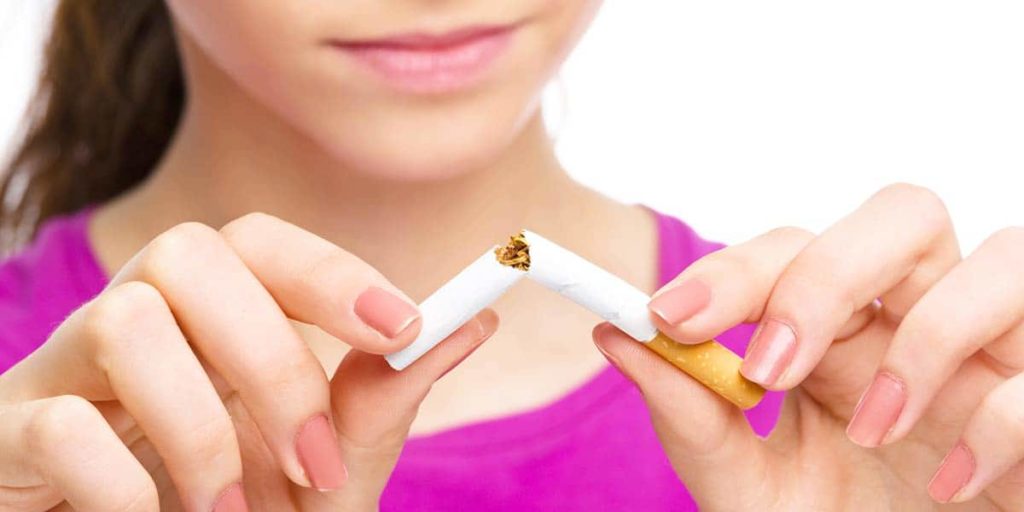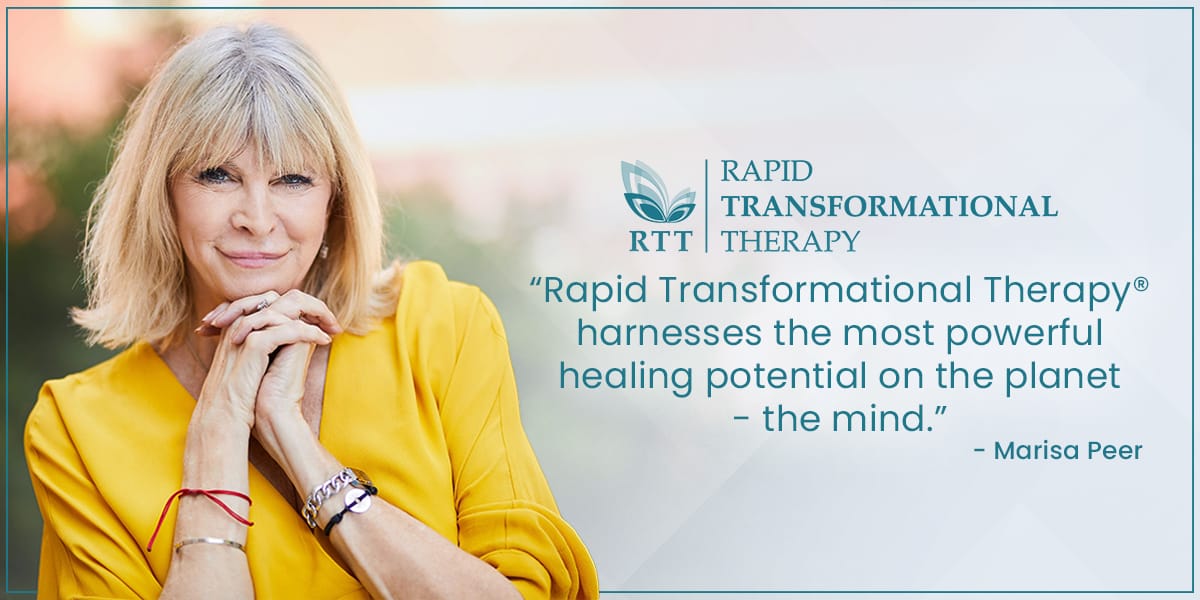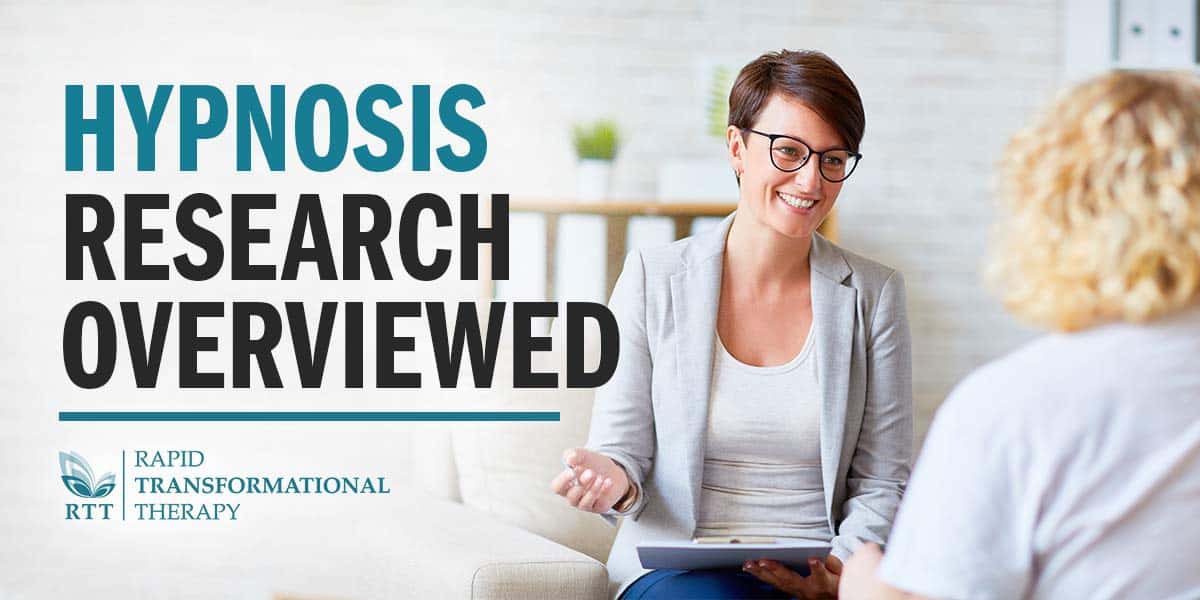Many of the diseases afflicting the human body may be a result of mental, emotional, or psychological disturbances.
If we are able to restore balance to these processes, we may be able to restore our health and minimize the effect of our symptoms on our functionality.
Hypnotherapy, also called hypnosis, is a therapeutic treatment that uses methods such as guided relaxation, imagery, suggestions, and intense focus to tap into the power of the unconscious mind and inspire healing.
The goal of hypnotherapy is to leverage the mind-body connection to ultimately improve our quality of life.
Literature in the medical field increasingly recognizes that hypnotherapy can be used as either a stand-alone therapy or an adjunct to medical therapy. It can be used to empower patients in managing, and in some instances, completely eliminating their symptoms.
In fact, research into the effectiveness of hypnotherapy in treating various disorders yielded positive results. This warrants further investigation into its use and benefits in multiple medical fields.
This compilation summarizes the academic literature on hypnosis research and clinical applications on the use of hypnotherapy and hypnosis in medical and psychological treatment.
You can learn more about hypnosis as a therapeutic modality, how to perform self-hypnosis, how to hypnotize someone, or how to become a hypnotherapist, and how to choose the best hypnotherapy training program.
Also, discover the advanced modality that incorporates the most effective elements of hypnosis, NLP, CBT, and psychotherapy to achieve permanent results. Rapid Transformational Therapy®(RTT®) has won multiple awards and is known to create permanent results in as little as one to three sessions.
Here is what we’re going to cover in this article:
- General medical use
- Pain management
- Addictions
- Phobias
- Emotional & mental health
- Body-related issues
- Health challenges
- Sex, fertility & childbirth
- Pediatrics & adolescents
- Self-esteem
- Relationships
- Performance
General Medical Use
This study presents a literature review of research into the effectiveness of hypnotherapy for the treatment of chronic pain and anxiety.
The researchers endorse the American Psychological Association’s (APA) definition of hypnosis: “A state of consciousness involving focused attention and reduced peripheral awareness characterized by an enhanced capacity for response to suggestion.”
Ten quality studies reviewed in the paper reveal that hypnotherapy is an effective tool that counselors and psychotherapists can use to treat chronic pain and anxiety.
This systematic literature review explores 91 research articles into hypnotherapy to determine the effectiveness of clinical hypnotherapy treatments in the treatment of health conditions or symptoms, including anxiety, pain, depression, irritable bowel syndrome (IBS), psychophysiological, post-traumatic stress disorder (PTSD), and smoking. Other conditions included alexithymia, emotional numbing, learning difficulties, obesity, self-efficacy, sexual dysfunction, sleep issues, and trauma.
40% of the literature provided evidence of the effectiveness of hypnotherapy in treating chronic pain.
The findings also show hypnotherapy to be effective in the treatment of anxiety. In addition, hypnotherapy was seen to significantly improve depressive symptoms and elevate mood.
The literature concluded that hypnotherapy was “a safe, clinically effective intervention” and recommended that hypnotherapy “should be considered within treatment management protocols for a wide range of conditions.”
The researchers set out to understand the role of hypnosis and hypnotherapy as interventions in integrative medicine.
The conscious mind, which represents a mere 10% of the mind’s functioning, is limited when it comes to understanding why one gets sick and how to heal. The unconscious mind, the remaining 90%, “contains all of our emotions, creativity, intuition, and a whole host of resources that control our bodily functions such as breathing, heart rate and metabolism.”
When we relax into a trance state induced by hypnosis and hypnotherapy, we are able to access the unconscious mind to improve healing.
As such, the researchers propose that integrative medicine include approaches such as hypnotherapy to complement traditional treatments.
Wark, D., 2008. What we can do with hypnosis: A brief note. American Journal of Clinical Hypnosis , 51(1), pp. 29-36.
In a review of 18 meta-analyses, hypnosis has been championed as a treatment for at least 32 disorders. This includes acute pain in children and adults, anorexia, anxiety about public speaking, exam anxiety, bedwetting, bulimia, cancer pain and distress, distress and pain during surgery, fibromyalgia, smoking, irritable bowel syndrome (IBS), high blood pressure, trauma, insomnia, and more.
In fact, in cases of anxiety about asthma, cancer pain, distress during surgery, headaches and migraines, and surgery pain in children and adults, hypnosis has proven more effective than other therapeutic interventions such as medication and psychotherapy.
The researcher advocates the use of hypnosis interventions to help patients overcome various health challenges.
Pain Management

According to the researchers, “Chronic nonspecific low back pain is a common condition that is associated with high financial costs and disability.”
The study explored the effectiveness of hypnotherapy in improving chronic non-specific low back pain in clients.
The researchers investigated the effectiveness of two therapies by splitting 100 patients into two groups: one where only pain education (PE) was used and one where PE was coupled with hypnotherapy.
The researchers found that clients undergoing a combination of PE and hypnotherapy reported lower worst pain intensity (high pain interference on mood, social relationships, walking, work, and life satisfaction) and reduction in disability within two weeks of therapy than those undergoing only PE.
Hypnosis was also reported to decrease catastrophizing, leading to a reduction in the intensity of chronic pain in patients.
Thompson, T. et al., 2019. The effectiveness of hypnosis for pain relief: A systematic review and meta-analysis of 85 controlled experimental trials. Neuroscience & Biobehavioral Reviews, Volume 99, pp. 298-310.
“Pain affects up to 1.5 billion adults worldwide,” resulting in disability, economic burden, and loss of quality of life.
The meta-analysis review of 85 studies, consisting of 3,632 participants suffering from chronic pain, aimed to quantify the effectiveness of hypnosis for reducing pain.
The findings reveal that hypnosis results in lower overall pain intensity (75%), lower affective pain rating (78%), increased pain tolerance (56%), and higher pain threshold (78%).
The researchers also found differences in the effectiveness of hypnosis based on the hypnotic suggestibility of patients. High hypnotic suggestibility patients experienced greater pain relief (42%) compared to their low hypnotic suggestibility counterparts (29%).
The study concludes that hypnotherapy can benefit the majority of people suffering from chronic pain.
Anaesthesia
Cancer patients requiring chemotherapy usually undergo the implantation of a subcutaneous central venous access port in their chest, which is a procedure performed under local anaesthesia.
The researchers aimed to determine the effectiveness of hypnotherapy on 148 patients undergoing the procedure under local anaesthesia across five primary dimensions: comfort, pain, attention, information, and waiting time. Secondary outcomes they explored included anxiety, heart rate, and physical discomfort.
Participants were divided into two groups, one receiving hypnosis and the other receiving standard care. The hypnosis group listened to a 26-minute recorded audio hypnosis session during the implantation procedure.
It was concluded that the patients from the hypnosis group reported significantly improved comfort and pain levels compared to the standard care group.
Hypnosis was recommended as an effective intervention that decreases anxiety, restlessness, and discomfort of patients undergoing surgery under local anaesthesia.
Addictions
The research cites that hypnosis treatment on a sample of up to 700 people showed a success rate of 80%.
Positive visualization and hypnotic aversion have been reported to decrease substance craving and promote abstinence from substance abuse. Furthermore, hypnosis has been seen to decrease withdrawal symptoms, which include an inability to think clearly, memory problems, physical coordination problems, emotional management and numbness, sleep disturbances, and stress sensitivity.
The researchers further aimed to determine the effectiveness of hypnosis in treating addictions.
The 18 participants between 18 and 63 years of age underwent one-hour hypnotic treatment sessions, five days a week, for a total of 22 sessions.
The results revealed that of the 12 clients who continued the treatment to the end, 100% remained drug-free. Only two clients returned to moderate drinking and two relapsed into alcohol abuse. The researcher lost contact with the last two clients. Hypnotherapy yielded a 77% success rate for at least a year post-treatment.
Drinking

Pekala, R. J. et al., 2011. Self-hypnosis relapse prevention training with chronic drug/alcohol users: Effects on self-esteem, affect, and relapse. The American Journal of Clinical Hypnosis, 46(4), pp. 281-297.
The study aimed to evaluate the effectiveness of self-hypnosis with chronic drug and alcohol patients in increasing self-esteem, improving emotional wellbeing, and preventing relapse.
The researchers divided participants into three groups: the hypnotherapy group, the transtheoretical cognitive-behavior group, and the stress management group. The participants included 261 veterans admitted to the Substance Abuse Residential Rehabilitation Treatment Programs (SARRTPs).
The researchers reported that individuals who played the self-hypnosis audiotapes “at least three to five times a week” for seven weeks experienced improvement in self-esteem and serenity and a decrease in anger and impulsivity compared to individuals who practiced less or were from the control groups.
They concluded that “hypnosis can be a useful adjunct in helping chronic substance abuse individuals with their reported self-esteem, serenity and anger/impulsivity.”
Drugs
Addiction arises from the need to “control their tension and anxiety with drugs” or for the “lift and feelings of euphoria” that drugs induce.
The researcher argues that hypnosis is a powerful intervention which could be applied in different ways in order to help addicts overcome their addictions and minimize relapse.
One method is using hypnotic aversion therapy to create an aversion towards using drugs, resulting in unpleasant reactions that drive them away from the drugs. Another method is using hypnotic relaxation therapy to induce relaxation through deep breathing and positive visualization. Addicts undergoing this type of hypnosis reported feeling lighter, more refreshed, and more mentally clear.
The researcher concludes that “the use of hypnosis in the treatment of drug addiction shows a great deal of promise.” He reported that hypnosis drives the success rate from a mere 2% to between 60%-70% consistently.
According to the researchers, “studies from around the world reported relapse rates for treatment of alcohol, opioids, and cocaine of 50% to 90% after one year of follow-up—even under the best treatment circumstances.”
The researchers set out to explore the efficacy of hypnotherapy on the relapse rate of opium addicts through a controlled trial.
The 22 male participants were equally divided into two groups: the hypnotherapy group and the control group. Both groups attended psychotherapy sessions; however, the hypnotherapy group received an additional five hypnotherapy sessions.
The researchers found that participants from the hypnotic aversion group had a 40% relapse rate in comparison to the control group, which reported 73% relapse. In addition, the hypnotherapy group reported improvements in insomnia (88%), restlessness (80%), pain (60%), and autonomic disturbances (32%).
An estimated 10% of opium addicts receiving methadone maintenance treatment (MMT) continue using heroin in conjunction with other street drugs.
The study explored the impact of hypnotherapy treatment in decreasing the use of heroin and other street drugs by 10 addicts undergoing MMT.
The participants were split into two groups, one of which attended 10 group hypnotherapy treatment sessions over the course of 10 weeks.
The results of the study reveal that 100% of the patients completely stopped the use of street drugs for six months after the treatment. In addition, two years post-intervention, 78% remained clean of heroin, 22% relapsed into partial use, and 67% returned to partial use of benzodiazepines.
The researchers conclude that their positive findings support the potential of group hypnotherapy in the reduction of street drug use and enhances the treatment of drug addictions.
Smoking

Elkins, G. et al., 2006. Intensive hypnotherapy for smoking cessation: A prospective study. International Journal of Clinical and Experimental Hypnosis, 54(3), pp. 303-315.
Hypnosis has been considered as an effective treatment for smoking; however, cessation rates have hovered at around 20-25% due to the lack of an intensive approach to hypnotherapy.
As such, the researchers endeavored to develop an intensive approach to hypnotherapy in order to raise cessation rates. 20 participants were divided into two groups: one that underwent eight intensive hypnotherapy sessions, each lasting an hour, and one that received self-help material from the National Cancer Institute.
The findings reflected that at eight weeks, 100% of the control group and 40% of the hypnotherapy group quit smoking; at 12 weeks, 0% of the control group and 60% of the hypnotherapy group remained abstinent from smoking; and at 26 weeks, 0% of the control group and 40% of the hypnotherapy had ceased smoking.
Elkins, G. R. & Rajab, M. H., 2004. Clinical hypnosis for smoking cessation: Preliminary results of a three-session intervention. International Journal of Clinical and Experimental Hypnosis, 52(1), pp. 73-81.
The study set out to explore the effectiveness of clinical hypnosis on smoking cessation.
The 21 smokers enrolled in a health maintenance organization (HMO) underwent hypnosis for three 45-minute sessions and were given a self-hypnosis cassette tape recording of a hypnotic induction with direct suggestions for relaxation and comfort.
The results indicated that 81% of the participants stopped smoking at the end of the treatment, 57% were abstinent at three months, 52% were abstinent at nine months, and 48% remained abstinent at 12 months.
In addition, 95% of the participants reported that they were highly satisfied with the hypnotherapy treatment they received.
The researchers concluded that hypnotherapy is an effective treatment for smoking cessation and propose that individuals with higher hypnotizability were more likely to benefit compared to those who had lower hypnotizability.
Phobias
Hypnotherapy “has been found to be very effective for neurotic disorders like panic disorder, phobias and post traumatic stress.”
In this case study, hypnotherapy and cognitive hypnotherapy were administered to a 37-year-old man suffering from panic disorder and aquaphobia to determine the effectiveness of these therapies in healing the patient.
Reported symptoms included shortness of breath, fear, choking sensations, and panic attacks while consuming water, juice, or soup.
The patient attended a total of six sessions, where hypnotherapy methods such as affective bridge, self-hypnosis, visualizations, and positive suggestions were used.
By the fifth session, the patient was drinking water without anxiety; and by the sixth session, he reported a significant improvement in his social life. In addition, the follow-up session six months later revealed no relapse symptoms.
An estimated 45% of adults report dental fear as a reason for avoiding dental treatment.
In this case study, the researcher explores the effect of hypnotherapy in treating the dental phobia experienced by a 31-year-old woman.
The first session revealed that the participant’s dental phobia was rooted in her fear of pain and mistrust towards doctors.
In the second session, desensitization therapy was administered to allow the participant to overcome fears contributing to dental phobia (such as her fear of needles).
In the third and last session, hypnotic interventions such as visualization, ego-strengthening, and posthypnotic suggestions were induced.
The researcher concluded that there was a “significant reduction in her dental anxiety,” revealing that the client’s post-treatment scores were “consistent with someone who has no or little anxiety, fear or phobia of dental treatment.”
Emotional & Mental Health
Alladin, A. & Amundson, J., 2016. Cognitive hypnotherapy as a transdiagnostic protocol for emotional disorders. International Journal of Clinical and Experimental Hypnosis, 64(2), p. 147–166.
This study explored unified treatment protocols of cognitive hypnotherapy in the treatment of emotional disorders.
Emotional disorders include “a spectrum of psychological conditions including anxiety, depression, dissociation, somatization, and trauma-related problems.” Patients suffering from emotional disorders have a tendency to experience a higher negative affect in response to external stimuli and interpret these stimuli as being harmful.
The goal of cognitive hypnotherapy is to reduce reactivity to external triggers and enhance skills related to affect regulation.
The researchers recommend that patients receive 20 weekly sessions of cognitive hypnotherapy, divided into two phases of treatment: firstly, hypnotherapy is used to assist with symptom management; and secondly, hypnotherapy is used to aid in uncovering and healing underlying causes of emotional disorders.
Stress

The researchers investigated the effectiveness of mindful hypnotherapy in reducing stress.
Mindful hypnotherapy combines elements of mindfulness and hypnotherapy whereby focusing attention to imagery helps promote a healthy mind-body connection.
In a randomized trial, 42 college students with elevated stress were divided into two groups: a control group and a group that underwent hypnotherapy. The hypnotherapy group completed one-hour individual sessions for eight weeks.
The findings revealed that participants experienced “significant improvements in perceived stress, overall mindfulness, psychological flexibility, and psychological distress.”
In addition, participants reported a decrease in depression, hopelessness, anxiety, and anger.
The researchers conclude that mindful hypnotherapy is effective, as it “significantly decreases psychological distress and perceived stress while boosting mindfulness.”
Alexithymia
Gay, M.-C., Hanin, D. & Luminet, O., 2008. Effectiveness of an hypnotic imagery intervention on reducing alexithymia. Contemporary Hypnosis, 25(1), pp. 1-13.
Alexithymia is characterized by the severe impairment of emotional processing, difficulty describing emotions, and a restricted imagination.
In this study, the researchers aimed to explore the effectiveness of hypnotherapy in improving the symptoms of alexithymia.
They divided 31 alexithymic female students into two groups: one that received hypnotic imagery therapy and one that did not. The hypnotherapy group participated in eight sessions, each lasting about 30 minutes, which took place once a week.
The findings indicated that hypnosis resulted in a decrease in alexithymic scores reported by the participants. Alexithymic scores for the hypnotherapy group dropped from 65 to 58 after four weeks of treatment, and to 56.5 after eight weeks of treatment. The control group, on the other hand, only dropped by two points (to 63) after 8 weeks.
Grief & Bereavement
Grief is the psychological and physiological response to loss. According to the International Classification of Mental and Behavioral Disorders, grief is “diagnosed as a prolonged depressive reaction.”
In this study, the researchers explored the effectiveness of hypnotherapy in treating underlying issues and maladaptive coping mechanisms associated with grief.
The case involved a 47-year-old male who lost his teenage son to suicide. He exhibited symptoms of low mood, suicidal thoughts, anger and aggression, disturbed sleep, and poor appetite, as well as excessive alcohol consumption.
In total, 40 sessions of hypnotherapy were administered to the patient to help him cope with the grief.
The researchers conclude that the outcomes included “grief resolution, symptom reduction,” and “improved level of functioning.”
They state that “Clinical hypnotherapy can be a useful and effective intervention in prolonged grief reaction.”
Anxiety

Anxiety is often experienced in times of high stress, such as when students are preparing for exams. The researchers argue that “people suffering badly from exam anxiety can experience nausea, panic attacks, inability to sleep and often an inability to perform in the exam.”
Through a meta-analysis of five randomized controlled trials, the researchers set out to explore the extent to which hypnotherapy can alleviate the exam anxiety experienced by undergraduate medical and nursing students.
Their systematic review revealed that students who received hypnotherapy to cope with exam anxiety experienced a reduction in exam anxiety and an improvement in overall exam performance.
The researchers concluded that the students who benefited the most from hypnosis were the ones who were susceptible to it (i.e., high hypnotisability).
Holdevici, I. & Crăciun, B., 2013. Hypnosis in the treatment of patients with anxiety disorders. Procedia—Social and Behavioral Sciences, 78(2013), pp. 471-475.
“Anxiety is a psychological and physiological state characterized by somatic, emotional, cognitive and behavioral components.”
In an attempt to explore the effectiveness of hypnotherapy in treating anxiety disorders, the researchers divided 63 participants between the ages of 23–53 into three groups: one received cognitive-behavioral interventions, one received cognitive-behavioral interventions and 12 therapeutic sessions of hypnotherapy, and the last received neither.
The researchers concluded that participants receiving cognitive-behavioral interventions coupled with hypnotherapy showed a significant improvement in mood, as well as decreased levels of depression and anxiety.
They state, “Overall, our findings suggest that the combination of cognitive-behavioral and hypnotherapy models is a highly viable treatment in the case of anxiety disorders.”
Depression
Major depressive disorder (MDD) is a complex condition. In fact, research has shown that not all depressives respond to traditional therapies such as medication, cognitive-behavioral therapy, or interpersonal psychotherapy.
Due to the disruptive and costly nature of the disorder, the researchers explored the effectiveness of hypnotherapy as a treatment for depression, stating that, “Hypnosis is a powerful tool for producing syncretic cognition, which consists of a mixture of cognitive, somatic, perceptual, physiological, visceral, and kinesthetic changes.”
The literature review reveals that hypnotherapy can enhance awareness and relaxation and improve the unconscious psychological processes that underlie depression. It can also be used for ego-strengthening, inducing positive mood, increasing motivation, and increasing self-reliance.
There are many effective hypnotherapy treatments, and the researcher recommends that therapists select “the most effective and efficient treatment strategies” for their patients.
Alladin, A. & Alibhai, A., 2007. Cognitive hypnotherapy for depression: An empirical investigation. International Journal of Clinical and Experimental Hypnosis, 55(2), pp. 147-166.
The researchers conducted an empirical investigation to determine the effectiveness of cognitive hypnotherapy in treating depression.
They divided 84 depressives into two groups that were assigned to 16 weeks of treatment. One group received cognitive hypnotherapy, while the other received cognitive-behavioral therapy.
The results showed that the cognitive hypnotherapy group reported 6% greater reduction in depressive symptoms, 5% greater reduction in anxiety, and 8% greater reduction in hopelessness compared to the group receiving cognitive-behavioral therapy. These results persisted up to 12 months post-treatment.
The researchers conclude that hypnotherapy meets the APA criteria for a “probably efficacious” treatment of depression.
Obsessive-Compulsive Disorder
Obsessive-compulsive disorder (OCD) is a debilitating life-long disorder characterized by repetitive “impulses, or images” that are distressing, and which are ignored or suppressed through repetitive thoughts or actions.
The study proposes a three-step hypno-strategic approach to reframe OCD symptoms from “the disturbing need to suppress” to a more “valuable resource for acquiring positive mental health.”
In the case of a 24-year-old female with OCD, hypnotherapy allowed her to reframe her fear of hurting others to thoughtfulness and caring about others. After a year of therapy and hypnosis, she was able to “achieve sufficient improvement” in her symptoms.
In the second case of a 19-year-old male with OCD, hypnotherapy allowed him to reframe his symptoms as positive. Furthermore, two years later, he reported a significant reduction in compulsive behavior.
The researchers suggest that hypnotherapy could “help alleviate OCD patients’ suffering” and “promote positive self-perceptions and wellbeing.”
Emotional Trauma

Lynn, S. J. & Cardeña, E., 2007. Hypnosis and the treatment of posttraumatic conditions: An evidence-based approach. International Journal of Clinical and Experimental Hypnosis, 55(2), pp. 164-188.
In a study cited by the researchers, 60%–90% of a sample of 6000 men and women from the general population reported experiencing at least one potentially traumatic event.
Symptoms of post-traumatic stress disorder (PTSD) include stress, hyperarousal, emotional numbing, avoidance, flashbacks, and reexperiencing of the traumatic event.
The researchers conducted a review of empirical evidence for the use of hypnosis in the treatment of PTSD and acute stress disorder. They also presented a case in which a woman suffering from PTSD, due to being sexually abused at the age of eight, was treated with hypnotherapy to manage her symptoms.
The patient received self-hypnosis sessions using age regression, video-monitor viewing techniques, and exposure procedures.
At one-year follow-up, the patient reported that she was “flashback-free,” leading the researchers to conclude that hypnosis is a promising technique to manage PTSD symptoms.
Complex trauma is trauma that occurs within an intimate relationship.
This study explores the effectiveness of hypnosis on managing the symptoms of four cases of complex trauma: two women who were sexually abused as children, one was a rape victim, and one was an abused spouse.
The researchers designed a three-phase framework incorporating eight to 22 sessions of hypnosis: (1) stabilization; (2) trauma processing; and (3) integration.
Symptoms experienced by the patients included mood swings, substance abuse, panic attacks, flashbacks, and depression.
The findings show that one woman experienced a complete resolution of trauma symptoms. Furthermore, all the participants’ trauma symptoms scores dropped below the clinical level at the six-month follow-up.
The researchers suggest that hypnosis could be an effective clinical tool in the treatment of complex trauma.
Body-Related Issues
Eating Disorders & Obesity

Eating disorders such as anorexia nervosa (AN) and bulimia nervosa (BN) exhibit symptoms such as “time distortion, hallucination, catalepsy, amnesia, and dissociation,” which influence the thoughts, moods, and behaviors of patients.
The meta-analysis of 24 AN cases consistently showed that hypnotherapy facilitated symptom remissions within four treatment sessions.
The researcher concludes that hypnotherapy is effective in helping clients overcome internal struggles involving their thoughts, perceptions, and behaviors, as well as “nullifying the driving force fueling AN symptoms.”
Obstructive sleep apnoea, caused by upper body obesity, is a condition that causes the collapse of the upper airways of the lungs during sleep and disrupts deep sleep cycles.
The study explored the effectiveness of hypnotherapy in assisting with weight loss to help patients suffering from obstructive sleep apnoea.
Through a randomized, controlled study, the researchers divided 60 obese patients into two groups: one that received two sessions of hypnotherapy for stress reduction and energy intake reduction, and one that only received dietary advice.
While the research was on a small scale and more intensive hypnotherapy was required, the results revealed that hypnotherapy for stress reduction particularly yielded statistically significant weight loss at 18 months post-treatment.
The researchers conclude that “the results of the trial are sufficiently encouraging to pursue this approach further.”
Body Dysmorphic Disorder
Body dysmorphic disorder (BDD) is characterized by a preoccupation with imaginary flaws in one’s appearance that adversely impacts functioning.
The researchers set out to examine the effect of cognitive-behavioral hypnotherapy on BDD, depression, and disability.
They investigated three case studies involving two male participants and one female participant, between the ages of 21 and 31, diagnosed with BDD.
The results reveal that all three patients showed a marked decrease in BDD, depression, and disability. Reported reduction of symptoms of the participants ranged from 28% to 44% at four months post-treatment.
The findings also report a significant decrease in depression (up to 95%) and disability (up to 73%) after treatment. Four months later, depression (up to 37%) and disability (up to 78%) scores were still lower than pre-treatment.
The researchers recommend incorporating hypnosis into cognitive-behavioral therapy for BDD.
Skin Disorders
Hypnosis in dermatology assists in the reduction of discomfort from itching or skin pain, altering the habit of itching, healing of skin disorders, alleviating psychosomatic causes, and reframing cognitive and emotional issues related to skin disorders.
Based on the conducted literature review, the researcher concludes that integrating hypnosis, meditation, and biofeedback into treatment strategies for skin disorders is safe, free of side effects, and can “sometimes produce significant results where other methods have failed.”
Health Challenges
Asthma
Asthma is a common and complex condition influenced by both medical and psychiatric symptoms, such as gastroesophageal reflux, chronic sinusitis, and anxiety.
The report presents the case study of a systemic, steroid-dependent, 13-year-old severe asthma patient who participated in self-hypnotherapy sessions to alleviate symptoms of asthma and anxiety.
Over the course of two weeks, she attended two 45-minute sessions and was encouraged to practice daily self-hypnosis at home.
Within two weeks, the patient “was able to use hypnosis instead of nebulized levalbuterol approximately half the time.”
Three months later, her use of levalbuterol was reduced from four times a day to zero. A year later, with daily self-hypnosis, the patient reported higher relaxation, reduced frustrations, better sleep, and improved academic performance.
The researcher recommends the use of self-hypnosis in treating anxiety to help with managing the symptoms of asthma patients.
Hackman, R. M., Stern, J. S. & Gershwin, M. E., 2000. Hypnosis and asthma: A critical review. Journal of Asthma, 37(1), pp. 1-15.
Asthma is a serious condition that affects patients’ quality of life. In a study of 7000 asthmatics, 40% reported being awakened every night, and 70% at least one night a week, due to asthma symptoms.
In a critical review of 20 controlled and randomized studies on the effectiveness of hypnosis in treating asthma, hypnosis was seen to reduce the severity symptoms by approximately 50-70%, the reliance on medication, and instances of hospitalization.
The researchers conclude that “significant data suggest that hypnosis may be an effective treatment for asthma.”
Cancer

Prostate and breast cancer treatments have negative impacts on the health of clients, including issues such as fatigue, sleeping disorders, emotional distress, and a decrease in quality of life. Additional negative consequences from cancer treatment include sexual dysfunction, loss of libido, and urinary or bowel issues.
The researchers set out to explore the effectiveness of hypnosis and self-hypnosis in treating these issues. The participants included 25 men with prostate cancer and 68 women with breast cancer.
The results report that women experienced the highest difficulties associated with their condition and found hypnotherapy to be effective in decreasing anxiety, depression, fatigue, sleeping disorders, and general health.
However, the research found that men experienced no effects from hypnotherapy, which could be linked to the men reporting lower distress and fatigue, and fewer sleep disorders.
The researchers recommend hypnotherapy interventions be used during cancer treatment to increase its effectiveness and better support patients.
Téllez, A. et al., 2017. The effect of hypnotherapy on the quality of life in women with breast cancer. Psychology in Russia: State of the Art, 10(2), pp. 228-240.
Cancer is a stressful chronic disease which impacts the quality of life of patients due to diagnoses, surgical procedures, and adverse effects of treatments.
The study aimed to evaluate the effectiveness of hypnotherapy on breast cancer patients’ quality of life during chemotherapy.
The 40 participants were divided into two groups: one received standard medical care while the other partook in 12 intensive hypnotherapy sessions over the course of one month and an additional 12 sessions over the course of six months. Each session lasted for 90 minutes and were administered throughout chemotherapy treatment.
The findings revealed that after six months, patients in the control group worsened eight times more than those in the hypnotherapy group.
The researchers conclude that hypnotherapy helps in “increasing cognitive functioning and reducing adverse effects on overall quality of life in women with breast cancer.”
Diabetes
Xua, Y. & Cardeña, E., 2008. Hypnosis as an adjunct therapy in the management of diabetes. International Journal of Clinical and Experimental Hypnosis, 56(1), pp. 63-72.
Diabetes mellitus is an endocrine disorder of carbohydrate metabolism that currently has no cure. Factors contributing to the onset of diabetes include genetics, environment, obesity, low activity, low glucose tolerance, and hypertension.
The study examined empirical literature on the effectiveness of hypnosis in managing diabetes and promoting necessary lifestyle changes.
The researcher recommended that hypnosis be used as a therapeutic adjunct to aid in regulating blood sugar, increasing compliance with diet and exercise plans, relieving stress associated with diabetes, and promoting weight loss.
Hypnotherapy operates on the premise that the answer to an individual’s problems lies within their mind. As such, hypnotherapy techniques “help uncover the reason behind the problem and re-meaning the patients’ underlying pathogenic factors and symptoms.”
The researchers aimed to explore the effectiveness of analytic hypnotherapy (that draws on concepts from analytical psychotherapy) on patients’ symptoms of type 1 diabetes.
They divided 28 diabetic participants, with a mean age of 31.7 years, into two groups: 15 individuals received three 60-minute hypnotherapy sessions and 13 individuals only saw a film about the human body.
The findings reveal a statistically significant decrease in blood glucose from initial scores to the scores gathered after the third session in the participants who received hypnosis.
The researchers suggest that “hypnotherapy allows the decrease of glycemic, with post-hypnotic suggestions and with self-hypnosis,” and recommended combining it with psychotherapy to improve glycemic control in diabetic patients.
Gastrointestinal Disorders
Functional gastrointestinal disorders (FGID) include conditions characterised by motility disturbance, visceral hypersensitivity, altered mucosal and immune function, altered gut microbiodata, and altered central nervous system processing. According to the researchers, patients have reported “disappointingly low” levels of satisfaction in medical treatments of FGID.
The researchers explored the effectiveness of hypnosis on FGID conditions and symptoms through a literature review of evidence-based studies on gut-focused hypnotherapy.
They conclude that “hypnotherapy significantly improves symptoms in up to 76% of patients with durable effects and important socioeconomic benefits.”
Gut-focused hypnotherapy was also seen to restore normal patterns of pain-related brain activity, improve pain and bloating, enhance quality of life of patients, and decrease reliance on medication.
Irritable Bowel Syndrome
The researchers aimed to determine the efficacy of gut-directed hypnotherapy in the treatment of irritable bowel syndrome (IBS) symptoms through two randomized, controlled trials.
In each of the trials, 138 IBS patients (90 in study one and 48 in study two) were grouped into two: in each of the studies, one group received gut-directed hypnotherapy and the control group received supportive therapy. In both studies, the hypnotherapy group received one-hour sessions each week for 12 weeks.
The researchers followed up with participants three months and a year post-treatment. In both studies, the gut-directed hypnotherapy groups showed statistically significant improvements in IBS symptoms at three months and one year compared to the control groups.
Furthermore, recipients of gut-directed hypnotherapy also showed positive results for secondary outcome measures, including quality of life, anxiety, and depression at three months and a year post-treatment compared to the control groups.
The researchers conclude that gut-directed hypnotherapy is “an important and useful therapeutic option.”
“Irritable bowel syndrome (IBS) affects between 10% and 15% of the population,” and many patients with severe symptoms fail to respond to standard treatments.
The researchers explored the effectiveness of gut-focused hypnotherapy in the management of IBS symptoms.
The study involved 1000 patients between the ages of 17–91 years who were suffering from IBS and unresponsive to dietary manipulation, antispasmodics, anti-diarrheals, laxatives, and antidepressants. They received 12 one-hour sessions of gut-focused hypnotherapy over a three-month period.
The researchers report that 76% of the patients exhibited a 50-point reduction in the severity of their IBS symptoms. In addition, 67% of the patients experienced 30% or greater reduction in pain scored.
Secondary outcomes reveal that IBS patients who suffered from anxiety dropped from 63% (pre-hypnotherapy) to 34% (post-hypnotherapy), and those who suffered from depression dropped from 25% (pre-hypnotherapy) to 12% (post-hypnotherapy).
Multiple Sclerosis
Clark, E. M., 2015. The effectiveness of hypnotherapy in treating multiple sclerosis, Santa Cruz: Mind Based Healing.
Multiple Sclerosis (MS) is an autoimmune disease that results in repeated bouts of inflammation and impacts the physical, mental, and cognitive health of patients.
The researchers conducted a literature review on hypnotherapy and autoimmune diseases, then tested the techniques on three groups of participants with MS in order to develop a MS hypnotherapy program.
The first seven volunteers received 12 sessions over six months; the second 17 volunteers received 12 sessions and tracked their results from the first to the last session; and the third group, formed by 10 members of the first two groups, underwent an additional six sessions.
After nine months of hypnotherapy treatment, cognitive function increased from 65% to 95%, energy increased from 30% to 60%, pain threshold increased from 35% to 50%, physical health increased from 45% to 60%, and mental health increased from 50% to 80%.
All three groups also reported an improvement in symptoms including fatigue, pain, anxiety, depression, and mobility.
The researchers conducted a quasi-experimental trial with 22 patients with multiple sclerosis (MS) and chronic pain to compare the effects of self-hypnosis training (HYP) with progressive muscle relaxation (PMR) therapy.
The first eight participants received HYP, and the next 14 participants were randomly assigned into two groups: seven received HYP and seven received PMR. All participants undergoing HYP and PMR attended 10 sessions. Data was collected before and after treatment as well as three months post-treatment.
The results show that 87% of the HYP participants reported at least a 30% decrease in pain intensity compared to 57% of the PMR participants. The HYP participants also reported a statistically significant decrease in daily pain at three months post-treatment compared to PMR participants.
The researchers concluded that self-hypnosis training is effective in managing chronic pain in MS patients.
Parkinson’s Disease

Parkinson’s disease (PD) is a stressful neurodegenerative disorder that affects the physical and psychological wellbeing of the patient.
Hypnosis has been found to be effective in treating symptoms of PD, which include pain, depression, anxiety, sleep disturbance, and autonomic dysfunction.
The researchers conducted a case study of a 51-year-old male who had been diagnosed with PD for one year and nine months to determine the efficacy of hypnosis in managing PD symptoms. He underwent three weekly clinical hypnosis sessions.
The results after the third session revealed a 94% decrease in rest tremor activity and more than 60% improvements in depression, anxiety, sleep quality, pain, stiffness, and libido. In addition, the quality of life score improved from 14% at three weeks to 69% at eight weeks.
The researchers concluded that hypnosis may be a feasible treatment option for Parkinson’s patients.
Autoimmune Disorders
The rationale for using mind-body approaches, such as hypnosis, to enhance treatment of autoimmune disorders is due to the connection between the immune system and the central nervous system
The study provided a systematic review of the literature on the connection between the brain and immune system, and presented five case studies on the effect of hypnotherapy in managing the symptoms of five autoimmune disorders.
The cases included a 39-year-old female with multiple sclerosis, a 25-year-old woman with rheumatoid arthritis, a 46-year-old man with polymyositis/dermatomyositis, a 33-year-old woman with systemic lupus erythematosus, and a 38-year-old woman with autoimmune pericarditis.
All the patients participating in the studies experienced full remission between three months to nine months post-treatment and reported significant improvements in their clinical states.
Psychosomatic
Flammer, E. & Alladin, A., 2007. The efficacy of hypnotherapy in the treatment of psychosomatic disorders: Meta-analytical evidence. International Journal of Clinical and Experimental Hypnosis, 55(3), pp. 251-74.
Psychosomatic disorders are ones that are rooted in psychological and mental processes rather than specific bodily injury or harm.
The researchers conducted a systemic meta-analysis of 22 randomized, controlled clinical studies that provide evidence for the efficacy of hypnotherapy in psychosomatic disorders (i.e., asthma, duodenal ulcer, dermatitis, headache, chronic pain, or enuresis).
The findings report that 65% of patients treated with hypnosis experience alleviation of their psychosomatic symptoms post-treatment, compared to 36% of the patients who did not receive hypnosis.
The researcher concludes that “hypnosis is an effective adjunct in the treatment of psychosomatic disorders.”
Ericksonian hypnosis used in the treatment of psychosomatic disorders addresses the patient’s personality, past experiences, and present environment to minimize emotional and psychological factors underlying their symptoms.
The researchers explored the effectiveness of Ericksonian hypnosis in treating pain and symptoms of psychosomatic disorders.
The study sample included 92 patients diagnosed with psychosomatic disorders who were divided into three groups (30 suffering from migraines, 32 asthmatics, and 30 with gastrointestinal disorders). Each participant received 15-20 sessions of Ericksonian hypnosis over the course of five months.
The findings show statistically significant differences between pre- and post-Ericksonian hypnosis with regards to pain global score, pain and emotion, bodily pain, and general health perceptions.
The researchers report that Ericksonian hypnosis was able to alleviate stress and give patients active control over their pain.
Hypertension
Hypertension increases the risk of cardiovascular disease and adversely impacts a patient’s quality of life.
The researchers aimed to explore the effectiveness of hypnotherapeutic interventions on alleviating symptoms of primary and secondary hypertension in patients.
The study sample included 80 patients diagnosed with primary and secondary hypertension and with hypertension and cardiovascular co-morbidities. 52 patients participated in a psychotherapeutic program, which included 12–16 sessions of Ericksonian hypnosis, and 28 patients only received medical treatment.
The results show that patients participating in the psychotherapeutic program which included Ericksonian hypnosis reported lower levels of stress, depressive, and anxious symptomatology, and higher quality of life compared to the control group.
The researchers assert that “using hypnosis in diminishing primary and secondary hypertension leads to positive results.”
Sex, Fertility & Childbirth
Sexual Dysfunction

Vaginismus is a “psycho-psychological syndrome affecting a woman’s freedom of sexual response by severely or totally impeding coital function.” Women suffering from vaginismus have a “phobia to the penetration of a foreign body into the vagina.”
Vaginismus “constitutes a medical emergency” that requires treatment. Common treatments include ineffective surgical correction under general anaesthesia, time-consuming psychotherapy and psychoanalysis, and the controversial use of vaginal dilators.
In order to develop an effective treatment for vaginismus, the researchers combined hypnotherapy and systemic desensitization.
Of the 71 patients participating in the study, 68 overcame their condition completely.
The researchers noted that hypnotherapy helped “strengthen and accelerate the desensitization process,” and that follow-up of the participants revealed they were “leading a normal sexual life with no symptom substitution.”
Hawkins, P. J., 2012. Hypnotherapy and sexual problems. In: M. Heap, ed. Hypnotherapy: A Handbook. New York: McGraw Hill, pp. 175-200.
In Hypnotherapy: A Handbook, literature on the treatment of female orgasmic disorder using hypnotherapy reveals that “some authors have reported recovery of orgasmic function by hypnosis alone.”
This is because hypnosis treats the underlying issues associated with the disorder, including “poor body image, guilt, fear of sex and fear of sexual encounters,” as well as “feelings of guilt and punishment commonly arising from a rigid sexual upbringing in childhood.”
Hypnotic imagery, ego-strengthening, stress management, and direct suggestions were used by the researchers to help patients become more comfortable with their bodies, enjoy erotic experiences, and be more motivated to explore the “pleasures, virtues and purposes of sex.”
One of the studies concluded that “hypnosis facilitated relaxation, time distortion, dream induction, and vivid imagery of pleasurable sexual experiences and led to an increase in intensity of sexual feeling and enjoyment of sexual dreams through post-hypnotic suggestions.”
The study approached sexual dysfunction as a disorder arising from the lack of acceptance and space given to the sexual ego state and explored the effectiveness of hypnotherapy in treating it.
In the first case, a 30-year-old married female suffered from vaginismus as well as depression and anxiety due to her condition. The case study concluded that the patient was able to overcome her condition and experience “sexual pleasure, desire and achieved orgasm” during intercourse with her husband through hypnotherapy.
In the second case, a 48-year-old wife and mother-of-three suffered from sexual trauma due to being sexually exploited in her early 20s. Through hypnotherapy, the patient was able to experience “positive cognitive changes in her thoughts about sex, changes in her desire and more positive and pleasurable feelings with sexual behavior.”
The researchers conclude that “Hypnosis coupled with ego-state therapy proves to be an excellent resource” that can help patients shift to the sexual ego state and overcome their sexual dysfunction.
This study explored the literature focusing on the use of hypnotherapy in the treatment of sexual dysfunction.
According to the study, hypnotherapy succeeded in treating various sexual dysfunctions without the use of medication. Conditions including hypoactive sexual desire disorder (low or no desire for sex), sexual aversion disorder (repulsed by sex), female sexual arousal disorder (inability to produce physical response to sexual excitement), male erectile disorder (inability to obtain or maintain adequate erection), female orgasmic disorder (delay or absence of orgasm), premature ejaculation (rapid male orgasm), male orgasmic disorder (extreme difficulty in reaching orgasm), dyspareunia (stabbing or burning sensation during intercourse), and vaginismus (vaginal spasms resulting in phobic reaction to intercourse).
Hypnotherapy was able to uncover and heal the causative factors which were responsible for the sexual disorders and “offered a rapid and cost-effective form of treatment for sexual disorders.”
Fertility
During in vitro fertilization (IVF), patients experience stress and discomfort related to the procedure.
The aim of the study was to determine the effectiveness of hypnotherapy in reducing stress and anxiety during IVF treatments with the objective of improving pregnancy and implantation rates.
The participants were divided into two groups: 98 patients received hypnosis and 96 patients received regular IVF treatment. The participants underwent hypnosis therapy using eye fixation, relaxation, and permissive and indirect suggestions. The IVF procedure was initiated once the patient was in an adequate trance state.
The results show that 58.4% of the patients receiving hypnotherapy conceived compared to 30.2% of the regular treatment group. The implantation rate for patients receiving hypnotherapy was 28%, compared to 14.4% for patients of the regular treatment.
The researchers hypothesize that hypnosis “relieves the sensation of stress and thereby reduces the uterine activity,” allowing for higher chances of embryo implantation.
Pregnancy

Hypnotherapy has been seen to decrease the fear of labour, pain during labor, and the amount of anaesthetic required.
The purpose of the study is to determine the effectiveness of antenatal hypnosis in pregnancy and hypno-birthing for labor and childbirth.
The study involved 60 pregnant women who were in the gestation period of 32-37 weeks and were planning a vaginal delivery. The researchers divided the women into two groups: one that received three sessions of hypnotherapy for three weeks and one that did not receive any treatment.
The hypnotherapy group reported more physical and emotional relaxation, decreased perception of pain during and after childbirth, and decreased usage of epidural anaesthesia than the control group.
The researchers conclude that “Hypnotherapy is a simple, inexpensive way to improve the pregnant woman’s state of mind during pregnancy and childbirth.”
Labor & Birth
Hypnosis in the case of labor aims to reduce anxiety and birth complications, increase pain tolerance, and enhance recovery.
To explore the efficacy of hypnosis on reducing pain during labor and delivery, the researchers conducted a comprehensive literature review of seven verified studies in which hypnosis intervention was compared with a different intervention in diminishing pain in labor or delivery.
Six out of seven studies reveal that hypnosis groups required less epidural analgesia, sedatives, and painkillers, experienced less childbirth complications, and had shorter length of stays in the hospital compared to standard medical care groups.
The researchers suggest that hypnosis interventions for delivery pain are more effective in reducing the application of analgesic medication and can potentially surpass common medical care.
The researchers conducted a systemic review of the evidence regarding the effect of hypnotherapy for pain relief during childbirth.
Out of 19 studies involving 8395 women, six studies involving 1102 women were identified where hypnosis was used to minimize pain during childbirth.
The outcomes of the studies claimed that hypnosis helped decrease discomfort, surgical intervention, complications during childbirth, and labor time. Furthermore, hypnosis was seen to increase pain threshold and promote less use of meperidine, analgesia, and meperidine.
The researchers conclude that “Despite differences between trials in the timing and number of hypnosis interventions reported, outcomes are consistently in favour of hypnosis.”
Menopause
Vasomotor symptoms (i.e., hot flashes) are a result of autonomic dysfunction and are characterized by an increase in heart rate, flushing, sweating, and cardiovascular risk.
The researchers conducted a randomized, controlled trial of clinical hypnosis to determine its effectiveness in treating vasomotor symptoms among post-menopausal women.
The trial involved 187 post-menopausal women reporting at least 50 hot flashes a week. Participants were divided into two groups: one receiving five weekly 45-minute sessions of clinical hypnosis and one receiving structured attention therapy. Follow-up data was collected at six weeks and 12 weeks post-treatment.
The results show that the hypnosis group experienced a 63.87% reduction in frequency of hot flashes from baseline to six weeks and 74.16% to 12 weeks compared to the control group’s reduction of 9.24% and 17.13%, respectively.
The researchers recommend the use of hypnotherapy in conjunction with other therapies to improve parasympathetic tone and decrease hot flash frequency.
Pediatrics & Adolescents
Anbar, R. D., 2002. Hypnosis in pediatrics: applications at a pediatric pulmonary center. BMC Pediatrics 2, 11(2002).
The study examined the efficacy of hypnosis for 303 patients, with an average age of 12.2 years, admitted to the Pediatric Pulmonary Center over a 30-month period.
Patients reported suffering from pulmonary hypertension symptoms due to psychological issues, discomfort due to medications, or fear of procedures. Hypnosis was also used to mitigate non-pulmonary symptoms, including abdominal pain, headaches, and insomnia.
The findings revealed that 81% of the patients experienced improvement post-hypnotherapy.
The researcher concludes that hypnotherapy can be “an important and complementary therapy for patients in pediatric practice,” helping to alleviate psychological factors that underlie the symptoms they experience.
Trichotillomania is a condition characterized by “the recurrent failure to resist pulling one’s own hair” and is observed that the behavior starts within five years before or after puberty.
The researchers conducted a case study of three pediatric cases of trichotillomania to ascertain the effectiveness of hypnosis in alleviating the driving force (repressed anger towards authoritarian, over-involved parents) behind the condition.
The cases of an eight-year-old boy (three months of trichotillomania), a 10-year-old boy (2.5 years of trichotillomania), and an 11-year-old girl (one year of trichotillomania) revealed that hypnotherapy was able to resolve the condition at five, seven, and six sessions, respectively.
Follow-up visits at three months and six months demonstrated no relapse in all three of the cases.
The researchers hypothesize that hypnotically facilitated psychotherapy allowed the children to gain more autonomy over their condition and relinquish their symptoms.
The researchers conducted a literature review of published laboratory and clinical research to address the therapeutic value of clinical hypnosis for children and adolescents.
The researchers provided four case presentations: a nine-year-old boy with anxiety; a 10-year-old boy with anger management and primary nocturnal enuresis; a 10-year-old girl with phobias from shots and warts; and a 15-year-old girl with chronic daily headaches.
Hypnotic interventions were used to help the patients develop various self-regulation skills.
The findings report that the first case showed significantly enhanced self-regulation, the second had 91% decrease in nocturnal enuresis, the third overcame her phobia and her warts were gone, and the final case experienced a 23% improvement in her symptoms.
The researchers suggest that hypnotherapy can be used as an adjunctive, valuable tool in the overall management of symptoms underlying conditions in children and adolescents.
Self-Esteem

Fraser, J., 2012. Using hypnosis to help build healthy self-esteem in clients. Australian Journal of Clinical Hypnotherapy and Hypnosis, 34(2), pp. 19-27.
“Self-esteem predicts depression, anxiety, and a number of psychological problems.”
The researchers propose a five-stage general strategy for using hypnotherapy to build self-esteem: (1) expectancy, (2) the “yes set,” (3) metaphors, (4) posthypnotic suggestions, and (5) homework.
They argue that hypnosis can be used to help reframe misconceptions about self-esteem in the minds of patients and provide them with powerful tools to build self-esteem.
Using positive self-talk and reducing negative self-talk enhances self-esteem, decreases anxiety, increases self-awareness, and improves cognitive functions.
This quasi-experimental study aims to analyse the effectiveness of hypnotherapy in reducing negative self-talk in a sample of 30 Iranian women who are heads of their households.
The participants were divided into two groups: 15 received eight 45-minute sessions of hypnotherapy on ego-strengthening and self-talk modification, and 15 served as a control group.
Results of the study reveal that the hypnotherapy group had statistically higher ego-strength scores and statistically lower negative self-talk scores than those in the control group.
The researchers promote integrating hypnotherapy into empowerment programs and therapeutic interventions to increase ego-strength and decrease negative self-talk.
Relationships
Ferguson, A., 2012. Working with couples using hypnotherapy. Australian Journal of Clinical Hypnotherapy and Hypnosis, 34(2), pp. 34-45.
Hypnotherapy is being esteemed as a tool that helps couples improve their relationships by allowing their “unconscious minds to work unimpeded” by conscious issues such as emotions, realities, and power dynamics.
The literature suggests that hypnotherapy can be used to enhance a couple’s “enjoyment of their relationship” and allows them to develop their relationship skills.
The findings propose that hypnosis offers “an efficient intervention as part of a comprehensive therapeutic process for couples.”
Performance
Memory
Hypnotherapy offers memory-focused interventions (MFI) that utilize memory plasticity for therapeutic purposes.
The researcher presents an integrative overview of empirical findings and two case studies on the use of MFI in hypnotic psychotherapy to treat trauma.
In the first case, a 45-year-old male divorcee struggling with low self-worth due to childhood trauma was able to realize his self-worth and make better life choices post-hypnotic treatment. He remained stable at a follow-up a year and a half later.
The second case presents a divorced single mother who had been abused by her parents. She underwent hypnosis to co-create and implant memories of an alternate childhood so she could be a better mother. After several sessions, she reported that she was a better mother. The results persisted at a one-year follow-up.
The researchers suggest that “MFIs are utilized to restore the balance in memory related problems,” and that careful care must be taken in the implementation of MFI.
Insomnia

Cheng, M. et al., 2017. Clinical hypnosis in reducing chronic insomnia accompanied by rumination. Open Journal of Social Sciences, 50(9), pp. 296-303.
Research draws a link between chronic insomnia and rumination. Rumination has been associated with negative emotions, depression, and prolonging insomnia.
The study explored the effect of hypnotherapeutic and relaxation interventions on patients with insomnia accompanied by rumination.
The 42 patients, who experienced insomnia at least three times a week for a period of six months prior to the study, were divided into two groups: one that received hypnotherapeutic treatment and one that received a recommendation to jog for 30 minutes every day.
The results revealed that the group receiving hypnotherapeutic treatment scored less on somatization, obsessive-compulsivity, depression, anxiety, hostility, and psychoticism. In addition, subjective sleep quality, latency, duration, and disturbances decreased while daytime function improved.
The researchers conclude that hypnosis and positive suggestion may be effective and safe techniques to treat patients with chronic insomnia and rumination.

Discover Rapid Transformational Therapy®(RTT®)—a revolutionary therapeutic modality that helps you tap directly into your subconscious mind—where all the fears and insecurities lie—and remove existing mental blocks and traumas to heal physically and mentally.
Created by Marisa Peer, a world-renowned speaker, therapist, and best-selling author with over 30 years of experience, RTT® is one of the most effective therapy methods. RTT® can help individuals overcome phobias, addictions, chronic pain, self-esteem issues, insomnia, and much more.



